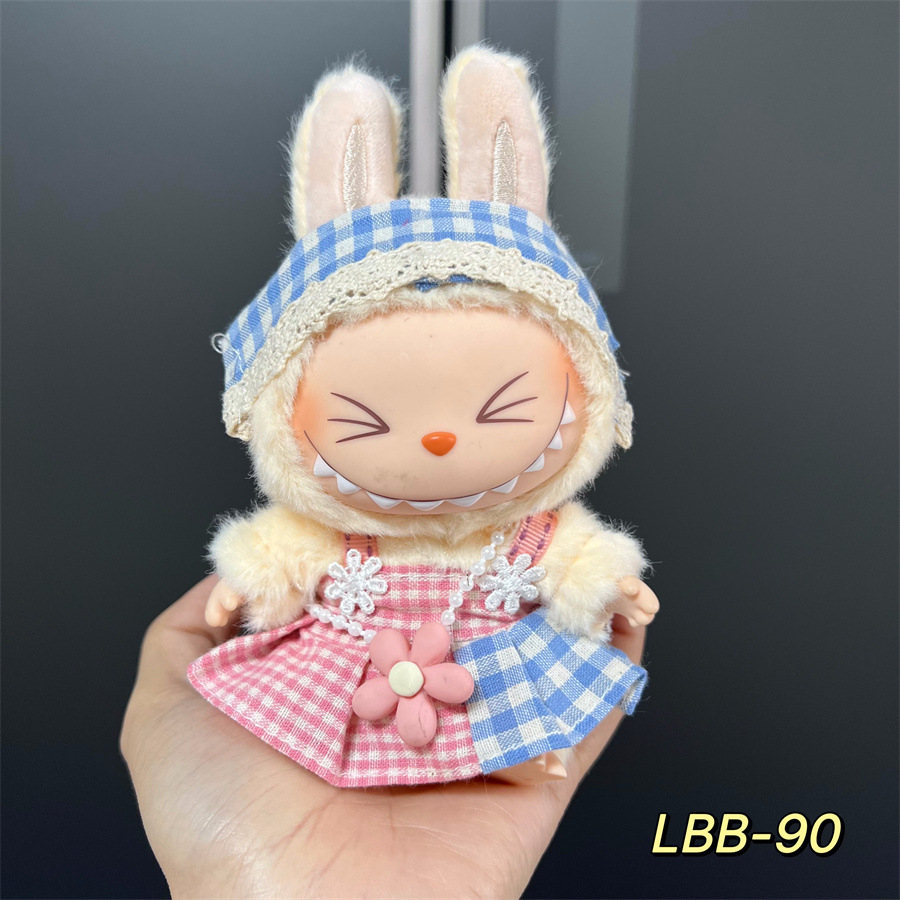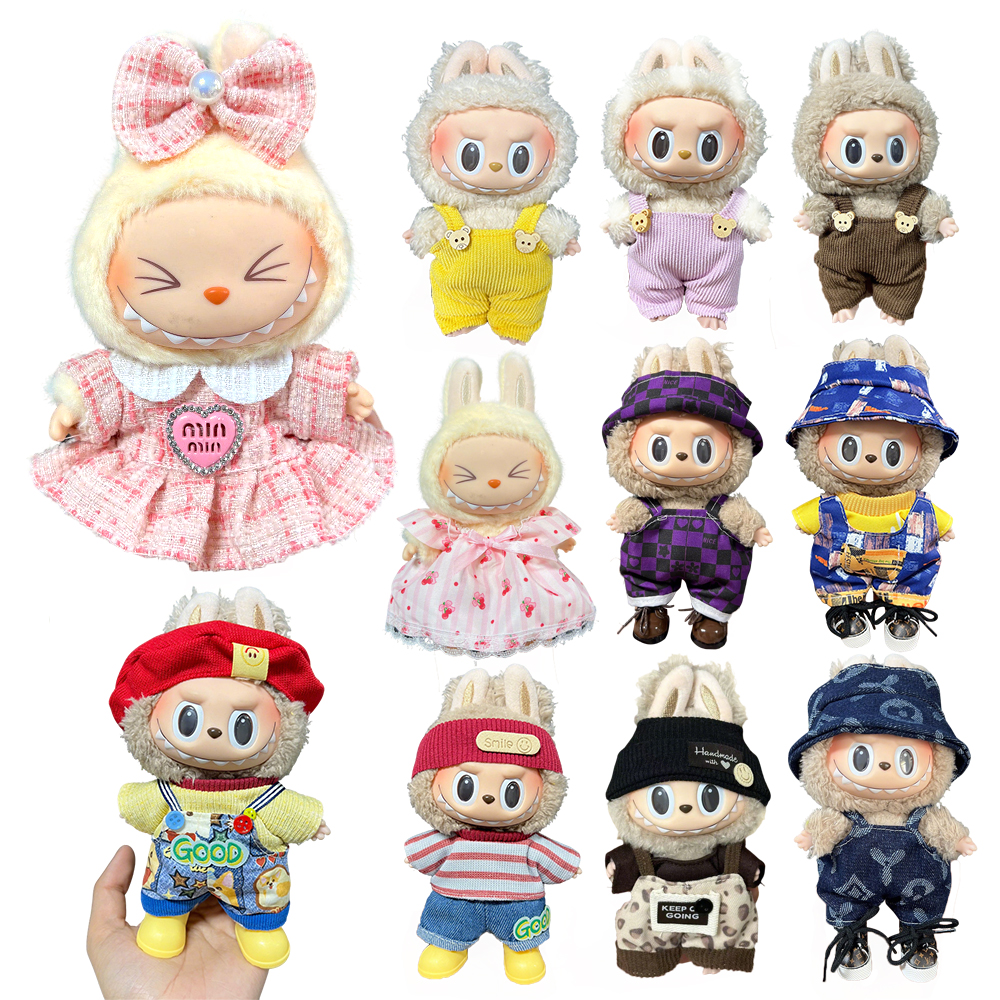The rise of a snaggle-toothed "goblin" named Labubu has rewritten the rules for cross-border commerce
In a stunning display of cultural export power, a mischievous, fanged creature from Chinese designer Kasing Lung’s fantasy world has ignited a global consumer frenzy—and reshaped cross-border e-commerce strategies along the way. Labubu, the flagship IP under Chinese toy giant Pop Mart, is no longer just a vinyl figure; it’s a billion-dollar catalyst transforming how brands sell internationally.
Explosive Growth Metrics Redefine Market Potential
The numbers tell a jaw-dropping story of cross-border success. Pop Mart’s sales on TikTok Shop in the US skyrocketed from $429,000 in May 2024 to $5.5 million by June 2025—a 1,828% year-on-year surge. Cumulatively, its 2025 sales on the platform reached $21.3 million by mid-year, already quadrupling its entire 2024 US performance.

This isn’t confined to America. In Australia, the "Labubu Fashion Wave" has consumers obsessively buying miniature outfits and accessories for their 17cm-tall figures, turning play into a social media styling phenomenon 1. Simultaneously, Southeast Asia’s TikTok Shop scene saw Pop Mart dominate June’s top-seller lists, moving 62,400 units across just five products in the region, driven largely by Labubu and its sibling IP Crybaby.
The momentum is viral—and global. Malaysia, previously a laggard in TikTok Shop toy sales, saw its top-five products—all Pop Mart items—achieve record monthly sales of 31,400 units in June, a tenfold increase from May.
A Masterclass in Reverse Globalization: From Bangkok to the World
What makes Labubu revolutionary isn’t just its design, but Pop Mart’s unconventional "overseas-first" market entry strategy—a blueprint for cross-border sellers.
Thailand: The Unlikely Launchpad
Pop Mart initially targeted trend hubs like Korea and Japan but pivoted to Thailand in 2023. Why? Thailand combined high GDP per capita, a leisure-oriented culture, and 80%+ internet penetration with extreme social media fluency. When Thai superstar Lisa (of BLACKPINK) spontaneously shared her Labubu "Heartbeat Macaron" series in April 2024, it triggered a national obsession. Google searches peaked, and offline stores became gathering spots—proof that emotional products thrive where community and sharing intersect.
Domino Effect: Southeast Asia → West → China
Thailand’s frenzy spilled into Malaysia, Singapore, and the Philippines by late 2024. By early 2025, Instagram and TikTok propelled Labubu into Western consciousness, amplified by celebrities like Rihanna and the Beckhams . Crucially, this global buzz boomeranged back to China. News of "Labubu selling out abroad" ignited FOMO domestically, turning a once-niche IP into a must-have cultural artifact.

TikTok Shop & Live Commerce: The Engine of Viral Sales
Social commerce platforms haven’t just facilitated Labubu’s rise—they’ve accelerated it into hyperdrive.
In the Philippines, live streaming contributed 21%-41% of sales for Pop Mart’s top products, especially the Coca-Cola collaboration series 3.
TikTok’s algorithm turned unboxing videos and styling tutorials (like Australian TikToker Tilda’s) into demand multipliers, blurring entertainment and impulse buying 13.
Temu leveraged the craze too: six of its top-ten doll accessories were Labubu outfits, with single items selling nearly 20,000 units 1.
The model is clear: low-friction discovery + shareable content + limited drops = explosive cross-border velocity.
Scalping, Scarcity, and the Dark Side of Hype
Yet virality breeds vulnerability. Labubu’s success exposed systemic cracks in high-demand cross-border trade:
Secondary Market Chaos: Scalpers use bots to hoard online releases, while "proxy queuing gangs" blockade physical stores. Hide-and-seek edition figures, originally $8.30, now resell for over $70 routinely. Rare pieces fetched $108,000 at Beijing auctions
Counterfeit Onslaught: With authentic stock scarce, knockoffs dubbed "Lafufu" flooded marketplaces. Alarmingly, some even replicated Pop Mart’s anti-fake QR codes. Chinese customs recently seized 3,088 counterfeit Labubu blind boxes and 598 fake toys bound for Kazakhstan.
Consumer Backlash: Social listening reveals polarized discourse: “cute” and “collectible” versus “scalping,” “capital,” and “FOMO exploitation”. Pop Mart publicly insists Labubu is a mass product, not a luxury—but the market’s speculative frenzy suggests otherwise.
The New Playbook for Cross-Border Success
Labubu’s ascent offers actionable insights for global e-commerce players:
Emotion Sells, Utility Doesn’t: Labubu thrives by embodying Gen Z’s "rebellious yet innocent" spirit. Products with strong emotional resonance travel farther than purely functional ones.
Leverage Local Influencers → Global Audiences: Lisa’s organic endorsement unlocked Thailand; her global fame then bridged Southeast Asia to the West. Micro-influencers like Vietnam’s Quyen Leo Daily drove 17-30% sales via livestreams.
Scarcity Needs Balance: While limited editions fuel hype, oversupply kills mystique. Pop Mart now walks a tightrope—increasing production to deter scalpers while preserving collectibility.
Platform Synergy Matters: Combining TikTok (discovery), Temu (mass sales), and physical stores (community) created a self-reinforcing ecosystem. Cross-border isn’t about single channels anymore—it’s about integrated funnels.
The Future: Beyond the Hype Cycle
As Pop Mart plans 130+ overseas stores by 2025, Labubu’s legacy will be measured not in units sold, but in how it reshaped global commerce. The playbook it pioneered—overseas cultural validation → social media amplification → domestic prestige—proves that Chinese brands can leverage cross-border platforms not just to sell, but to build global iconography.
Yet sustainability hinges on mitigating scalping and counterfeits through tech-driven verification and balanced releases. If managed wisely, Labubu’s snarling grin could symbolize more than a toy—it might just represent the next evolution of globalized retail.
For cross-border sellers, the Labubu phenomenon delivers one unambiguous message: In today’s social-first commerce landscape, cultural relevance is the ultimate currency.
Post time: Jul-12-2025



